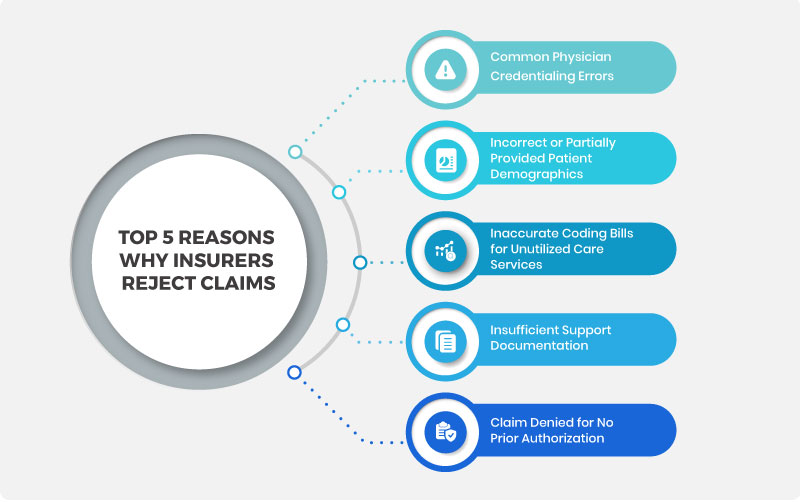6 Key Strategies to Improve
6 Key Strategies to Improve Denial Management Services in Healthcare Revenue Cycle

Blog
6 Key Strategies to Improve Denial Management Services in Healthcare Revenue Cycle

This article will discuss some of the key questions and considerations in terms of Claims management to optimize revenue cycle performance.
ADenial management services and reimbursements are constantly evolving in healthcare. The Affordable Care Act (ACA) has fostered major transitions in the healthcare landscape with a paradigm shift towards value-based and patient-centric care models—where Physician practices and hospitals assume a greater share of risks and responsibilities. In the changing ecosystem, it is critical that care providers rethink their healthcare revenue cycle strategies in ensuring value delivered to the patients is paid for appropriately.
Claims submission plays a significant part in healthcare revenue cycle management, and providers need to device a strategic roadmap to streamline the medical billing process and maximize reimbursements. This article will discuss some of the key questions and considerations in terms of Claims management to optimize revenue cycle performance.
To begin with, physicians need to understand the nuances of claims to ensure timely and accurate payment of their claims. Care providers need to consider these five key components.

When you can segment the process into these five categories, you can specifically address concerns within each of these components to identify what works and what does not.
Accurate patient data is a key requisite to gaining the maximum coverage. The Healthcare revenue cycle process considers critical patient information including their job profile and age. Care providers need to document accurate and updated patient details in terms of policy number, deductibles, billing address, third-party insurance details, and more.
Claims management team needs to be well-equipped with constant training and certification. Changing healthcare regulations and care models foster payers to constantly change and update their distinct set of rules in processing claims. Different payers use chart notes for different reasons ranging from establishing primary care relationships to non-standard treatment follow-ups. It is essential that your revenue cycle team is well-trained and can handle claims appropriately. Ensure that your training process includes key functions like accessing patient data, interpreting filing essentials, etc.
You need to have a strategic plan to handle claim denials efficiently. Whether you outsource revenue cycle management services or handle it in-house, it is essential that you train your claims management team.

Hospitals and physician practices can also backtrack coding methods to maximize efficiencies. This can significantly drive down the rate of claim denials. Providing chart notes to your billing team can also improve accuracies, save time and enhance the overall medical billing process. You also need to keep tabs on the coding strategy and verification process if claims are more often rejected due to coding bills for which services were not availed by patients.
The claims management team should frequently do a quality check to improve the medical billing process and let the care providers focus on higher priority tasks. An increasing claim denial rate can tremendously impact the quality of healthcare services in the long run. Hence, it would help if you watched out for any possible errors that can cause claim denials. Hospitals and practices can leverage the capabilities of payment records and accounting functions to monitor the cash flow. Ensure that your account logs and account balances are up-to-date
The account log should consist of the following data:
Denied claims follow-up is yet another significant process that needs focus in the overall claims management process. You can identify and prevent faulty claims by probing aging account dues. Consider asking these questions:
Ensure that faulty accounts are identified and analyzed to optimize the performance. Reimagine your strategies and organize processes to let you file claims faster and streamline communications with stakeholders.
SolvEdge is an ISO-certified healthcare revenue cycle management company with 15+ years of experience in healthcare technology services. We offer proven solutions trusted by 450+ hospitals, 3500+ physicians, and 3.4 M patients worldwide. Our certified and experienced professionals are well-trained in denial management services and provide effective solutions in-tune with industry standards and client requirements.
Contact us to get an expert recommendation on our denial management services and get a quick and customized quote..
From our humble beginnings as a healthcare start-up—to becoming a full-blown healthcare-exclusive digital transformation provider, our journey has been quite a remarkable one. Today, SolvEdge is a leading-edge Healthcare services and solutions provider—trusted by 450+ Hospitals, 3500+ Physicians and millions of patients across the globe.